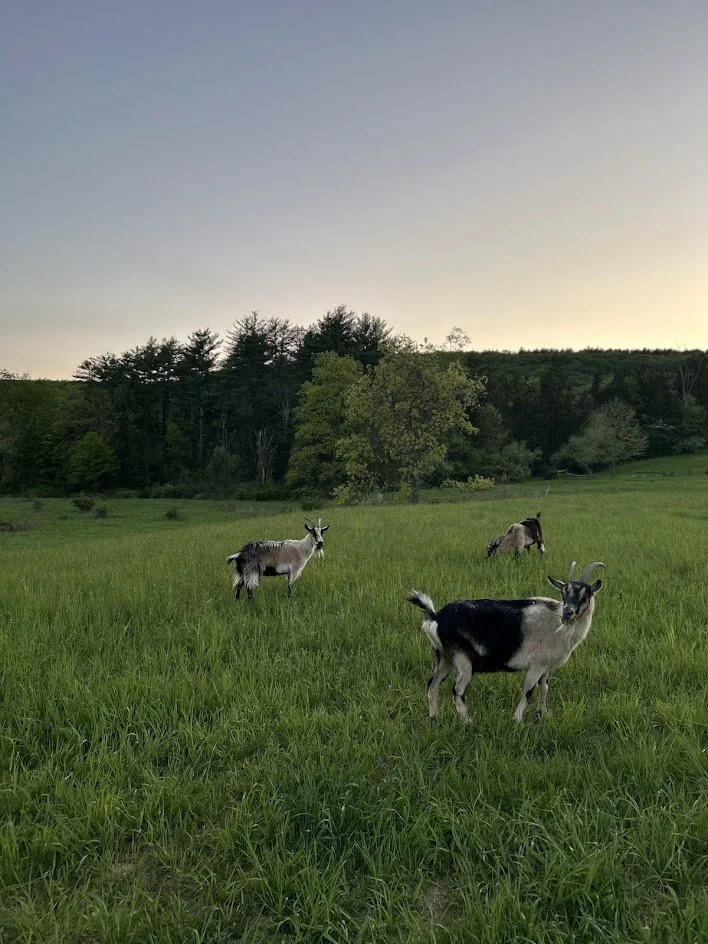The Farm
the farm in Spring of 2024
Just minutes outside the town of Catskill and nestled between the foot of the Catskill Mountains and the ambling Kaaterskill Creek, our farm encompasses 14.7 acres of flat, open & prime agricultural soil. We purchased this land in December of 2023.
Indigenous Land & Territorial Ackowledgement
It is with gratitude and humility that we acknowledge that we are learning, living, gathering and growing on the ancestral homelands of the Muhheaconneok or Mohican people, who are the indigenous peoples of this land. Despite tremendous hardship in being forced from here, today their community resides in Wisconsin and is known as the Stockbridge-Munsee Community. We pay honor and respect to their ancestors past and present as we commit to building a more inclusive and equitable space for all.
We commit to amplifying and centering the history and current experience of the Stockbridge Munsee community. We invite and welcome Stockbridge-Munsee community members to this land to hold and engage in spiritual, cultural, and social gatherings. We will make an annual donation towards the construction of their new cultural center. We will work with community farmers and herbalists to plant, tend, save and exchange seed of culturally significant varieties of plants. We will lend our voices in efforts to reclaim ancestral land and to assert the sovereignty of their people.
Our growing practices
We grow in adherence to the National Organic Program. This means that we do not use synthetic herbicides, pesticides, fertilizers or GMOs. We plan to pursue Certified Organic status in 2026 through the Northeastern Organic Farming Association of NY (NOFA-NY).
We grow vegetables on a pretty small scale. This small footprint forces us to use our space as efficiently as possible: planting crops closely and re-planting beds 2-3 times per year. This also means that there are certain space-hogging crops that, at this time, we choose to not grow — such as potatoes and melons. We strive for minimal tillage of the soil, and use heavy compost applications, solar tarps and cover cropping to keep the soil biology alive, fed and healthy.
An important and long-term goal of ours is to create most of the farm’s fertility needs on-site and luckily, we love animals. We are very curious about integrating animals into our small-scale vegetable operation for pest management and adding fertility back into the soil. We currently have three goats: Chaga, Chicory and Clover. We miss having chickens and plan to add laying hens to the mix within the next year or so. The goats are in charge of rehabbing our overgrown lower field (where we hope to someday plant chestnut trees and blueberries); the several hundred feet of creek frontage, all of which is overgrown with invasive vines that are choking out the mature hardwood trees; and providing comedic relief…and they all do their jobs very well! Someday the chickens will run through the pastures and compost piles during the grazing season where they can scratch, thatch and forage to their hearts-content, fertilizing as they go.


